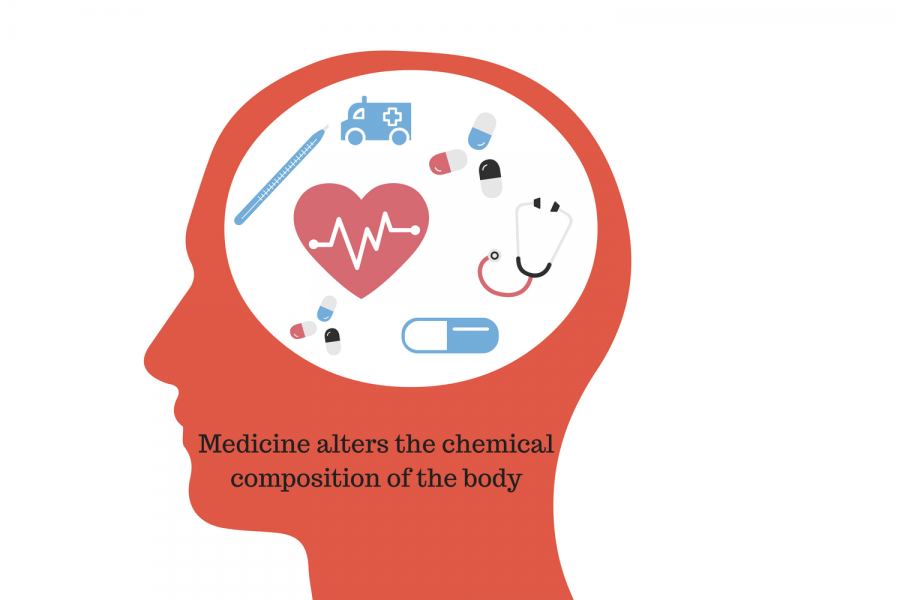Medicine may have a negative effect on the body
January 31, 2017
A drug is defined as a medicine or other substance that has a physiological effect when ingested; however, the public is often unaware of the type of effects drugs have on the body.
“Medicine alters the chemical composition of the body, it has various effects,” said psychology teacher Ian Tobey. “For example aspirin is a blood thinner.”
People typically do not think about the real consequences of taking one little pill. All they know is that they want their issue or condition to be fixed.
Side effects are going to be prevalent in almost every drug. Even common headache medicine such as Advil, has side effects such as upset stomach, mild heartburn, nausea, vomiting, bloating, gas, diarrhea, or constipation.
“I’m on a medicine that blocks production of stomach acid, and if I get blood work done, then it’ll show up as a cellular mutation which is cancer,” said sophomore Sarena Corcoran.
People are often using medicines anytime anything is wrong with them. This excessive use of medicine has created drug-resistant bacteria.
“Overuse can create a dependency on any drug, good or bad,” said Tobey. “Taking aspirin or ibuprofen all the time is really bad for your liver.”
Certain illnesses and diseases are completely immune to any type of treatment. Some of these treatments can have long-lasting effects on the human body. These long-lasting effects could include depression, mood disturbances, developmental issues, and even cancer.
Each chemical can have unique effects on neurons and other cells.
“I feel like the positive side is less significant than the negative side, which just isn’t worth it,” said Sarena.
According to Harvard Magazine, Ted Kaptchuk, an associate professor of medicine, did a clinical drug trial where patients were given an anti-pain pill or had acupuncture performed. Many patients complained of side effects such as the pills making them sluggish and the needles causing swelling.
The pills his team had given the patients were actually made of cornstarch and the “acupuncture” needles were retractable shams that never pierced the skin.
According to Kaptchuk, “You can think yourself better.”
Countless other studies have been shown where half the group has been given a real drug, and the other half is given a placebo. Sometimes the outcome gets up to 50 percent response from those who took the fake treatment.
If the human body has potential to have the same response to a sugar pill as it does to a chemical pill, then it makes medicine seem unnecessary.
“Mentally and physically there are a lot of downsides to medicine that just seem counterproductive,” said Sarena.


